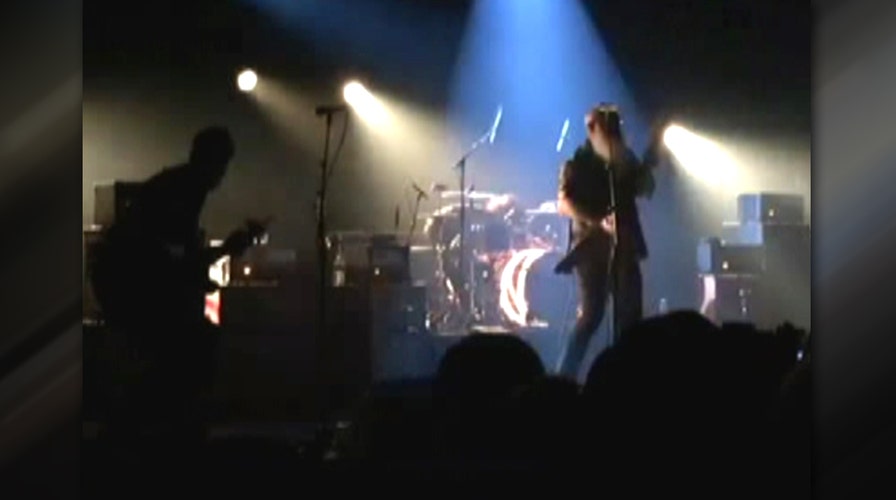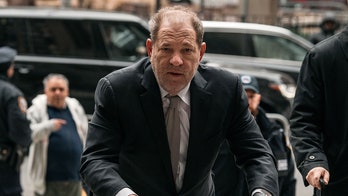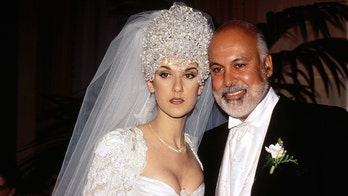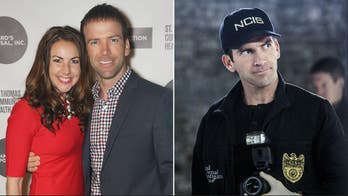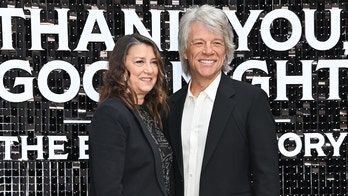Video purports to capture gunfire in Bataclan concert hall
Raw video: Gunfire interrupts concert
Members of the American rock band that was playing the Paris concert hall targeted by ISIS terrorists earlier this month have given their full account of the attack for the first time and vowed that they "can't wait" to return to the scarred venue.
In an interview with Vice News released Wednesday, Eagles of Death Metal co-founders Jesse Hughes and Josh Homme, as well as supporting players and members of the band's support crew, described the moments after the attack at the Bataclan theatre and their response to the shattering experience. Of the 130 people killed in the attacks that night, 89 died at the concert.
The attack began at approximately 9:40 p.m., around an hour into the sold out show. Sound engineer Shawn London described hearing explosions and seeing members of the crowd fall to the floor.
"Injuries. Death. And then, also, running," London said. "There was nowhere to go." He added that one of the gunmen looked at him, aimed and fired, but missed.
"He stayed there and just continued to shoot, and slaughter, and scream at the top of his lungs 'Allahu Akbar!'" London said.
When the shooting started, Hughes said he left the stage to look for his girlfriend in the band's dressing room on the upper floor. She wasn't there. When he went back into the hallway, he came face-to-face with a gunman.
"He turned on me," Hughes said. "He brought his gun down, and his barrel hit the door frame, and I was like, 'Oh, f---' and I turned around, because I could tell people were following me. "I was like, 'No, no, no, no, no. Do not f---ing come this way, do not,' and we started heading back down." Hughes reunited with his girlfriend on the street outside.
"Several people hid in our dressing room and the killers were able to get in and killed every one of them except for a kid who was hiding under my leather jacket," Hughes said in a segment of the interview Vice released last week.
The attackers strafed their way inside the concert hall, through the bar and merchandise counter, and straight to the pit, according to witness accounts — unleashing a torrent of gunfire. Among those killed was a band employee, merchandise manager Nick Alexander. In the interview, Hughes said Alexander had bled to death instead of calling for help, possibly giving away his location to the lurking terrorists.
"A great reason why so many were killed was because so many people wouldn't leave their friends," Hughes said. "So many people put themselves in front of people."
As the attackers mowed people down, a police commissioner and his driver, learning from the police radio that they were near the site, sped to the concert hall before more elite teams could get there. They charged inside, shooting one of the gunmen before the attacker had a chance to use his high-powered rifle. Then they retreated so that special-operations teams could assemble.
It was a key action that slowed the pace of carnage. "In hindsight, I know that we saved dozens, maybe hundreds of lives," the commissioner, who hasn't been named, told private television channel M6.
"It's their action that made it possible to stop the killing," Christophe Molmy, who heads the elite BRI police intervention squad, said of the police commissioner and his driver. When Molmy's rapid-reaction team arrived at 10:15, "there's no shooting, there's no noise, there's an oppressive silence inside the Bataclan."
Inside, the remaining gunmen took hostages and used them as human shields or as go-betweens with police — ordered to tell the elite police teams to stay back.
Bassist Matt McJunkins described hiding in a room off the stage with the band's tour manager and several other concertgoers, including some who had been wounded.
"Someone blocked a door with a chair," McJunkins said. "Another found a bottle of Champagne to use as a weapon ... The gunfire went on for 10, 15 minutes. Then it would stop and there was this sense of relief, and it would start again. And then there was an explosion," which he later learned was one of the gunmen detonating his suicide vest.
At 12:20 a.m., an assault by a police intervention team ended with one gunman shot dead, and another blown up in a suicide explosion, said Paris prosecutor Francois Molins. Some police who moved in after it was all over said they were traumatized by the incessant ringing of cell phones scattered about the debris, blood and corpses, an officer told the Associated Press. One screen showed a missed call from "Mom."
It is not clear what the future holds for the Bataclan, which dates from the 1860s. However, the band members have vowed that they will return and play the theater when it reopens.
"I want to be the first band to pay in the Bataclan when it opens up," Hughes said. "Because I was there when it went silent for a minute. Our friends went there to go see rock and roll, and died. I'm going to go back there and live."
The Associated Press contributed to this report.
